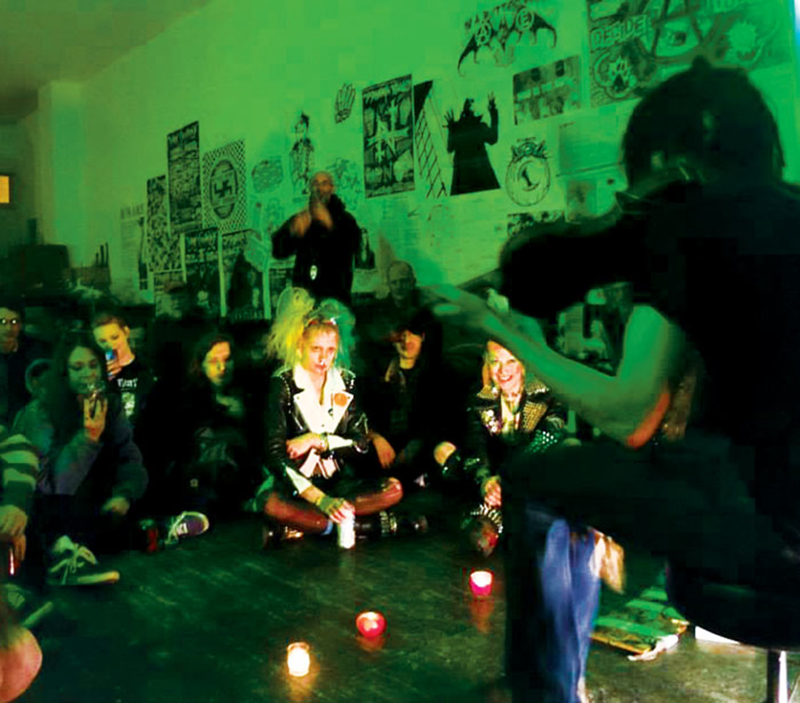Robert Inhuman is a long-time participant in Cincinnati's DIY scene, as well as a key operator of Realicide Youth Records, a punk/noise/electronic label. CityBeat chatted with Robert about the DIY community in Cincinnati and the loss of his most recent space, Cide Central. This interview has been lightly edited and condensed for clarity.
CityBeat: I know you've been involved in the DIY community for a long, long time with Realicide Youth Records, Art Damage and more. I wonder if you could fill me in a bit more about how you got into DIY stuff and talk about any other spaces you've run in Cincy.
Robert Inhuman: I became interested in DIY pertaining to the arts as a kid basically, out of disinterest in any means that were completely detached from my personal world or whose validity seemed to be largely defined by its professional exclusion of me. As an adult this interest in Do It Yourself transcended the arts as an all-encompassing life philosophy, and a mandatory one as an Anarchist who believes in the vitally inevitable collapse of industrial civilization. Spaces I've had a hand in or helped with over the years include Art Damage Inc (2005), Sugary Slimepit (2006), Women of Crenshaw (2008 in LA), Bunk Spot (2009), Mockbee (various years), Goetz Alley (2011), Rake's End (starting 2012 tho this is a bar), Soapbox Books (2013), Fickle Ramps (2014), Cide Central (2015), etc.
CB: Kind of a big, philosophical question: What do these spaces, and this scene, add to Cincy? I'm thinking not just in terms of sound/music, but in terms of community in general.
RI: DIY spaces endorse an ethos that can begin with fun down-to-earth music shows, but become gateways toward political radicalization and empowerment that permeates every facet of your existence (food, clothing, housing, transportation, employment, relationships...) Successful DIY in a community tends to really be an attitude of Do It Together. In a city like Cincinnati when we build up stuff like this we know it's sort of making something from nothing, culturally I mean.
CB: I'm very interested to know more about what happened to Cide Central. I know the building you were renting in was purchased. Can you tell me more about shutting down? How that process went, what it meant to you, that kind of thing.
RI: The buildings on Central Avenue that housed Cide Central, LOHIOH and other spaces, were bought together for around $225,000... we were told we had to leave by October, and we did as much at the space as possible up until then. A lot of kids were very pissed off about the space being closed. They're asking where the next venue is, while Last House and Tacocracy closed the same summer, but I'm still just trying to secure a place to live. We lived there too, so it was much more than losing only the community space.
CB: Given your long history with the community, do you feel it's getting harder to have these kind of spaces in the city, especially close to OTR/Brighton/central areas of the city? Or is it easier/the same/cyclical etc?
RI: I'm becoming increasing curious about spaces appearing in Price Hill these days, rooted in pursuits of things like permaculture rather than more disheveled rooms rented merely for the sake of weird music. I don't really think about if it's harder or not I guess. I just take circumstances as they come, putting forth the necessary effort when it's a challenge and celebrating when we win, be it for a few days or years.


